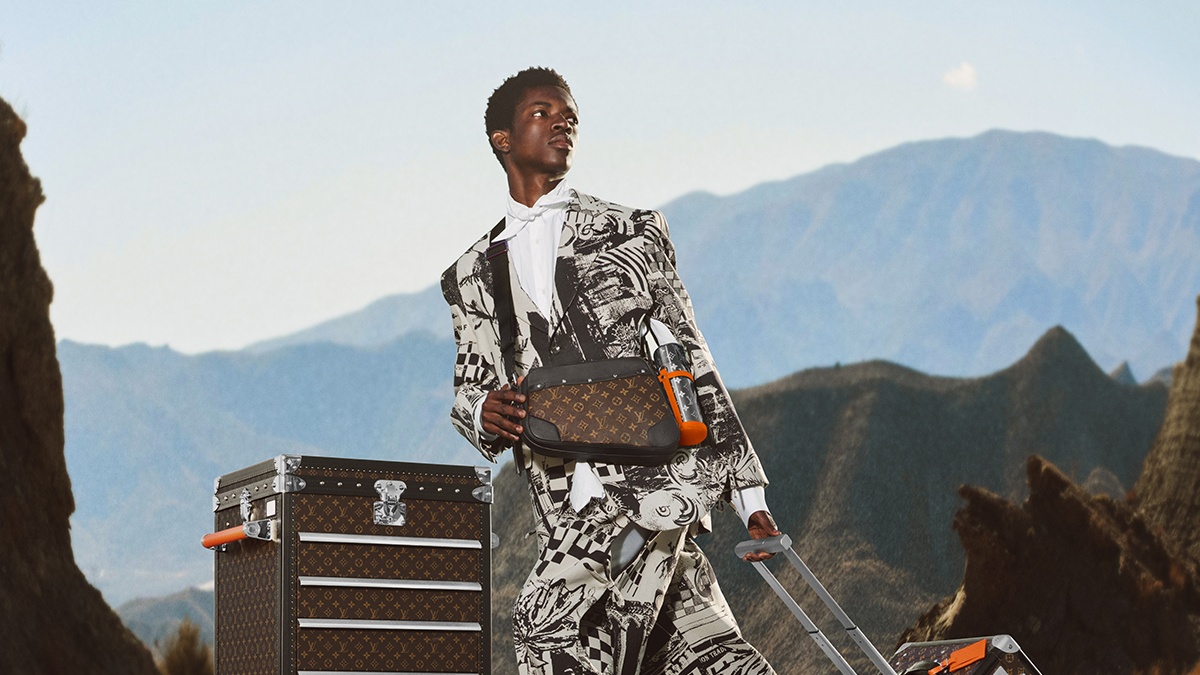European luxury goods makers are experiencing a renaissance due to robust demand in China, primarily fueled by the resumption of normal activities following the country's removal of COVID-19 restrictions, in turn driving the stock prices of some luxury fashion houses to all-time highs.
“China should become the industry’s growth engine from this year on, and we expect brands at the top of the luxury-goods pyramid to benefit the most,” Edouard Aubin, equity analyst at Morgan Stanley, stated in a recent report.
As the country’s middle-to-high income consumer base continues to expand — and these individuals typically express their financial success and status through luxury goods consumption — experts believe that the Chinese market will be crucial for global luxury sector growth well into the future.
“There is further growth of middle class households who account for a bulk of the luxury consumption, even in a climate where China's growth has been moderate,” says Felicia Schwartz, founder of brand consultancy China Insight.
China’s population of middle-and high-income consumers is expected to double by 2030 to reach around 500 million people, according to Bain & Company.
Upward trajectory#
The stock prices of luxury brands such as Hermès, Kering and LVMH have risen significantly from the beginning of Q4 2022.
Hermès and LVMH’s share prices hit record highs in April, increasing by 65 percent and 48 percent, respectively, while Kering's shares have climbed 27 percent.
In Q1 2023, LVMH reported 17 percent year-on-year global sales growth, and a 14 percent increase in Asia, driven by China's reopening. Similarly, Hermès reported a 23 percent YoY increase in revenue from Asia in the first three months of 2023. It went on to top market capitalization of 200 billion for the first time in April. One caveat to note is that stellar sales growth comes off a low base.
“With Chinese tourists now able to freely travel overseas, they are actively stimulating the luxury sector by purchasing high-end products in their destination countries,” says Ashley Dudarenok, China digital marketing expert and founder of China digital marketing agency Alarice.
Post-pandemic turning points#
Prior to the COVID-19 pandemic, around 66 percent of Chinese consumer spending on luxury goods occurred outside China, contributing to approximately 60 percent of the industry's growth between 2000 and 2019, according to a Morgan Stanley report published in March.
Chinese consumers' luxury goods spending declined 10-15 percent in 2022, following a 20 percent annual increase in 2021, the report found.
The tide has turned this year, and many top executives are doubling down on China.
During Q1 2023, prominent luxury conglomerate executives like François-Henri Pinault, CEO and chairman of Kering Group, ventured to prominent Chinese cities like Shanghai, Beijing, Chengdu, and Nanjing.

Dudarenok says executives also paid attention to emerging second-tier cities and smaller markets, reflecting these locations’ immense potential for luxury consumption.
“In addition, the comparatively lower prices of luxury goods in Europe versus China may incentivize Chinese consumers to increase their purchases of established brands in Europe [now that they are allowed to travel abroad], further contributing to the sector's success,” she adds.
Luxury with Chinese characteristics#
McKinsey & Company projects that the combined spending of 7.6 million Chinese households on luxury goods will hit RMB 1 trillion (145 billion) by 2025, twice the amount spent in 2016.
This figure is equivalent to combined luxury goods spending in France, Italy, Japan, the UK, and the US in 2016.
Wang Qing, a professor of marketing and co-founder of the Luxury and Innovation Hub at the UK’s University of Warwick, explains that the rise of luxury consumption in China is the result of the country’s stage of economic development and cultural characteristics.
“As China's economy has rapidly grown, a large population of new wealthy individuals who use luxury goods to symbolize status and financial success has emerged. Culturally, China is a (socially) interdependent society where people are susceptible to peer pressure and influences,” she says.
Schwartz concurs, saying China is a hierarchical and status-focused society in which people like to show off the accessories as a way of gaining prestige.
“The other reason is that they can afford it,” she says. “China’s middle classes are now becoming sophisticated consumers who have travelled and experienced different brands and appreciate beauty, craftsmanship and quality.”
Which brands are winning?#
LVMH and Hermès stand out among the luxury brands that are in high demand among Chinese buyers.
“From a marketing perspective, this is due to the strong country of origin effect of the French luxury sector in Chinese consumers’ minds and the French luxury companies’ effective brand communication strategies and storytelling,” Wang says.

“In contrast, Italian brands are somewhat slow at adapting to the different cultural context of the Chinese luxury market, and their brand image suffered due to poor communication strategies, as illustrated in the D&G controversy,” she says.
Jonathan Siboni, founder and CEO of Paris-based data intelligence firm Luxurynsight, says the success of Hermès with Chinese consumers is because it’s a family-owned luxury brand that values creating attachment with its customers and producing uncompromised quality.
“Hermès avoids flooding the market with its products and focuses on long-term growth and sustainability, rather than short-term gains. The company's slow and precise decision-making and commitment to perfectionism contribute to its reputation as a luxury brand that is also akin to art,” he says.
Other brands would be well advised to learn lessons from LVMH and Hermès’ success in China, Siboni adds.

